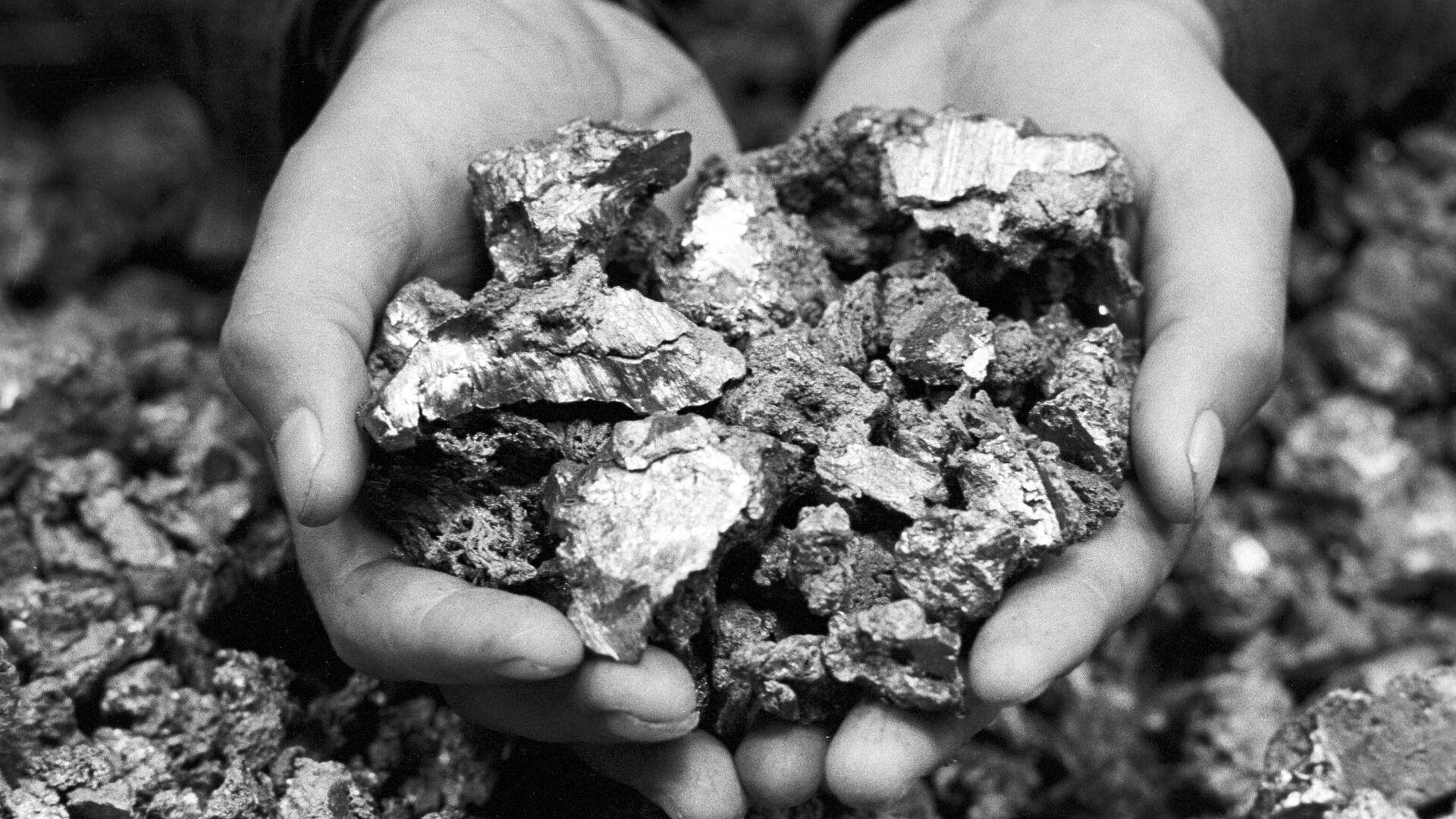https://sputnikglobe.com/20221201/russian-scientists-learn-to-double-cyclic-strength-of-titanium-alloys-1104930803.html
Russian Scientists Learn to Double Cyclic Strength of Titanium Alloys
Russian Scientists Learn to Double Cyclic Strength of Titanium Alloys
Sputnik International
MOSCOW (Sputnik) – According to scientists at Volgograd State Technical University (VolgSTU), the developed technology will increase the strength of titanium... 01.12.2022, Sputnik International
2022-12-01T11:18+0000
2022-12-01T11:18+0000
2023-04-21T10:42+0000
science & tech
titanium
alloys
russia
https://cdn1.img.sputnikglobe.com/img/07e6/0c/01/1104930968_0:156:3089:1894_1920x0_80_0_0_116142d5a3285a2da35ced90508d3873.jpg
Titanium is one of the most abundant metals on the planet, and it also possesses a sought-after combination of properties for industry, lightness, strength and resistance to corrosion, the Volgograd State Technical University (VolgSTU) said.The sphere of application of titanium alloys is very wide. They are used in aircraft, ship and automobile construction. Titanium-based alloys are particularly important for creating technical elements that interact with aggressive liquids and water, the university added.Since the strength under variable loads and resistance to external influences of titanium alloys are of the greatest importance for the industry, VolgSTU researchers have developed a technology to improve these properties.He added that the selected treatment of the alloy surface results in a special layer that has increased hardness, resistance to wear, and cyclic loads. The operating time before failure of the hardened products increases by 1.5-2 times, whereas the material’s strength increases by 30-40 percent.The uniqueness of the electromechanical-based technology lies in the simultaneous effect on the material of high temperatures and contact pressures, leading to the formation of a specific structure and enhanced material properties, scientists explained.According to the specialists, the introduction of the technology into industry will expand the possibilities of using titanium alloys in assemblies working under conditions of intensive friction, wear and tear and repeated alternating loads, for example, in aviation, rocket and space, military equipment and medical products. The results of their study were published in the Metals journal.The research is part of a VolgSTU strategic project within the framework of the "Priority 2030" program.The university’s development program includes four strategic projects, including the “Center for Digital Scientific and Educational Projects and Developments,” and the “Technologies for Industrial Innovation Cluster.”
russia
Sputnik International
feedback@sputniknews.com
+74956456601
MIA „Rosiya Segodnya“
2022
Sputnik International
feedback@sputniknews.com
+74956456601
MIA „Rosiya Segodnya“
News
en_EN
Sputnik International
feedback@sputniknews.com
+74956456601
MIA „Rosiya Segodnya“
Sputnik International
feedback@sputniknews.com
+74956456601
MIA „Rosiya Segodnya“
titanium alloys, russian scientists, russia
titanium alloys, russian scientists, russia
Russian Scientists Learn to Double Cyclic Strength of Titanium Alloys
11:18 GMT 01.12.2022 (Updated: 10:42 GMT 21.04.2023) MOSCOW (Sputnik) – According to scientists at Volgograd State Technical University (VolgSTU), the developed technology will increase the strength of titanium alloys by 40 percent and double their service life.
Titanium is one of the most abundant metals on the planet, and it also possesses a sought-after combination of properties for industry, lightness, strength and resistance to corrosion, the Volgograd State Technical University (VolgSTU) said.
The sphere of application of titanium alloys is very wide. They are used in aircraft, ship and automobile construction. Titanium-based alloys are particularly important for creating technical elements that interact with aggressive liquids and water, the university added.
Since the strength under variable loads and resistance to external influences of titanium alloys are of the greatest importance for the industry, VolgSTU researchers have developed a technology to improve these properties.
"We used electromechanical treatment for surface hardening. This is a process that utilizes electric current of high density (from 200 A/mm2 to 1000 A/mm2) and low voltage (1.5-2 V) passed through a local contact zone (with an area of about 1.5-2 mm2) of the tool with the sample surface," Igor Zakharov, Head of the Resistance of Materials Department at VolgSTU, said.
He added that the selected treatment of the alloy surface results in a special layer that has increased hardness, resistance to wear, and cyclic loads. The operating time before failure of the hardened products increases by 1.5-2 times, whereas the material’s strength increases by 30-40 percent.
"High temperatures (up to 1,200-1,500 ºC) and heating rates (105-106 ºC/s) are applied in the processing zone. This promotes simultaneous nucleation of a large number of new phase centers and subsequent fixation of the formed particles due to high cooling rates (104-105 ºC/s) of the metal," Zakharov said.
The uniqueness of the electromechanical-based technology lies in the simultaneous effect on the material of high temperatures and contact pressures, leading to the formation of a specific structure and enhanced material properties, scientists explained.
According to the specialists, the introduction of the technology into industry will expand the possibilities of using titanium alloys in assemblies working under conditions of intensive friction, wear and tear and repeated alternating loads, for example, in aviation, rocket and space, military equipment and medical products. The results of their study were published in
the Metals journal.
The research is part of a VolgSTU strategic project within the framework of the "Priority 2030" program.
The university’s development program includes four strategic projects, including the “Center for Digital Scientific and Educational Projects and Developments,” and the “Technologies for Industrial Innovation Cluster.”



